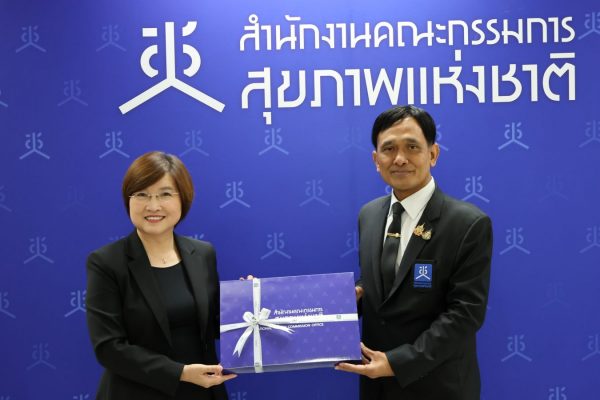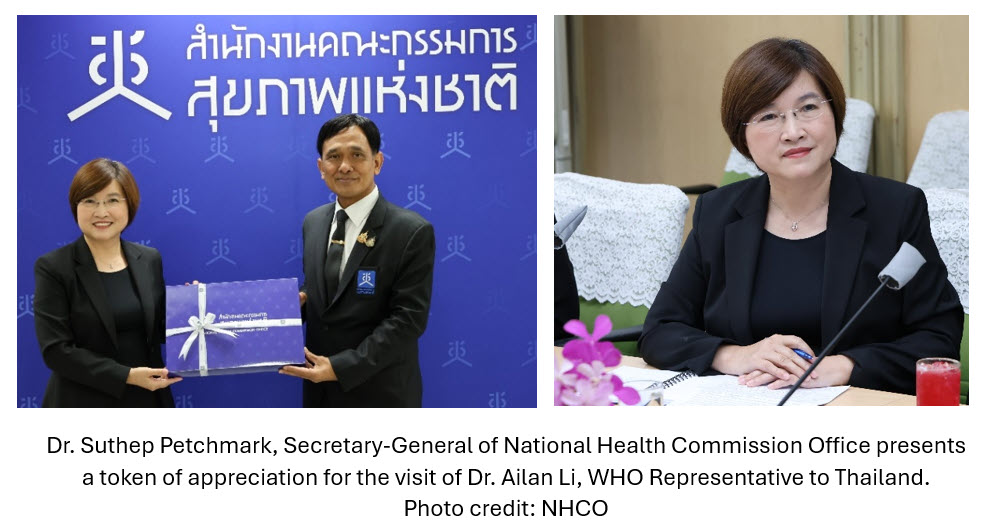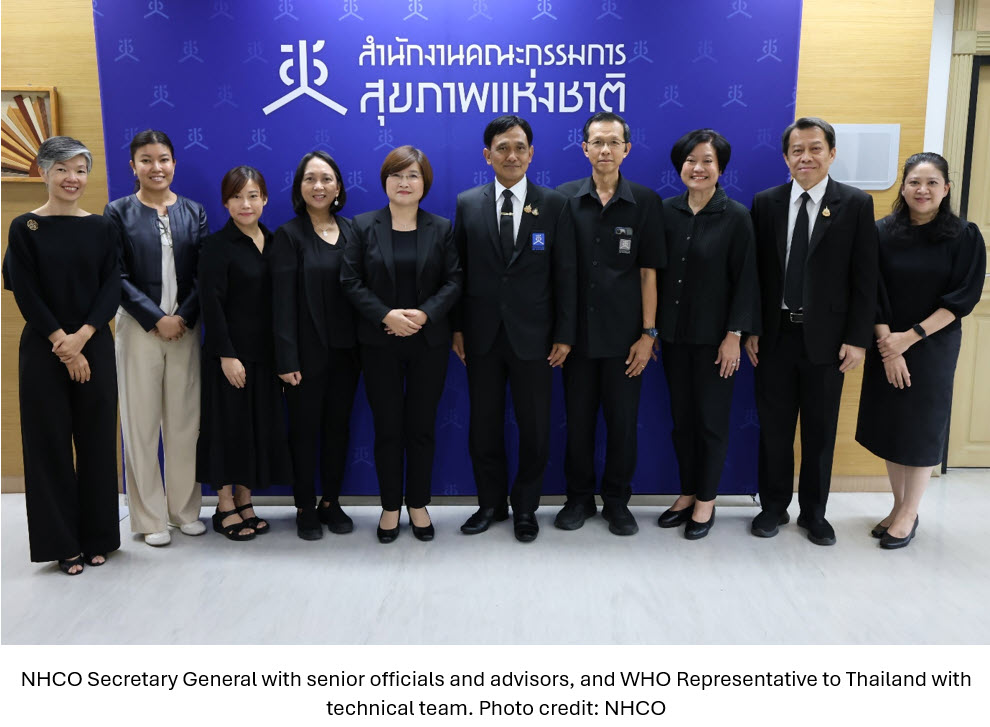
WHO and NHCO Strengthen Collaboration for Inclusive and Equitable Health Systems
Nonthaburi, 27 October 2025 – The World Health Organization (WHO) and the National Health Commission Office (NHCO) reaffirmed their close partnership to advance social participation, equity, and health governance in Thailand and beyond. During a dialogue between Dr. Ailan Li, WHO Representative to Thailand, and Dr. Suthep Petchmark, Secretary-General of NHCO, both organizations recognized the need for stronger collaboration that promotes national mechanisms for empowering communities and people-centered health systems.
Dr Ailan Li commended NHCO’s innovative participatory governance mechanisms—such as the National Health Assembly (NHA), Health Charter, and Health Impact Assessment (HIA)—as noteworthy examples of how citizens and multi-sectoral partners can shape public policy. NHCO’s approach is aligned and contributes to the implementation of WHO’s Fourteenth General Programme of Work (GPW14), which aims to promote, provide, and protect the health and well-being of all people, everywhere.

Sharing strategic priorities and exploring potential collaboration
Both NHCO and WHO discussed and exchanged their views on key priorities and potential entry points for collaboration:
- Social Participation and Governance
WHO recognizes the NHA as a model for participatory policy development. The NHCO aims to build a global learning hub on social participation, including through WHO platforms such as WHO Collaborating Center. The goal is to share Thailand’s experience in inclusive policy processes and community empowerment as well as provide a platform for knowledge exchange with other Member States. - Health Equity and Social Determinants of Health (SDH) : NHCO is developing national indicators for health equity and aims to adapt WHO’s SDH Operational Framework for local use. WHO prioritizes health equity as core to achieving healthier populations and encourages Thailand to serve as a model country for leading this initiative, linking national data to global efforts on reducing inequities.
- Healthy Ageing and the Silver Economy
Both organizations commit to supporting the WHO South East Asia Region’s Colombo Declaration on Healthy Ageing through strengthened primary health (2025), in line with the UN Decade of Healthy Ageing, 2021-2030 and promote the silver economy as an opportunity for social and economic resilience. - School Health and Youth Empowerment
The NHCO’s School Health Charter, serves as a model for integrating health promotion into education to cultivate health literacy and social responsibility among young people. This fits well with the WHO SEAR Member States Resolution on Implementation of the global standards on Health Promoting Schools and inclusive health education for parents, teachers and communities. - Health Impact Assessment and Environmental Governance
Through the Annual HIA Forum and the HIA Consortium, NHCO and WHO are both committed to link environmental determinants to policy outcomes, for example, on climate change, clean air, and river contamination. - Decentralization and Local Health SystemsRegional Health Commissions for People and Area Strengthening Alliances (ASA) aligns with WHO’s emphasis on people empowerment, equity and primary health care reform in line with GPW14 (2025–2028).
Looking ahead to its 20th anniversary in 2027, NHCO aims to expand its international role through research, learning exchanges, and technical cooperation with WHO—strengthening Thailand’s leadership and contribution to global health for equity, participation, and health for all.

Media Contact:
Global Partnership Department, NHCO
Email: global@nationalhealth.or.th
Website: https://en.nationalhealth.or.th
